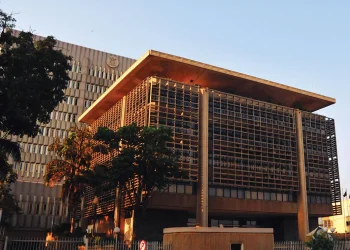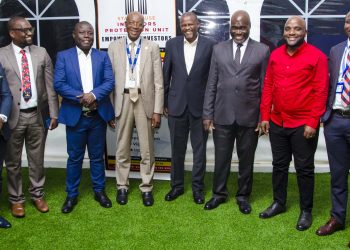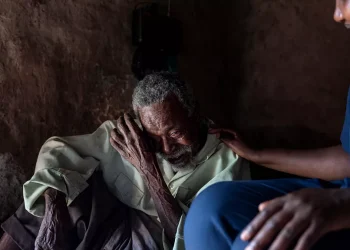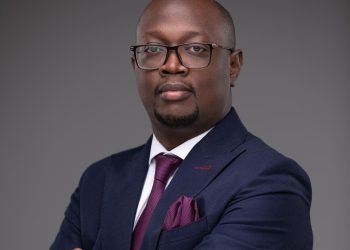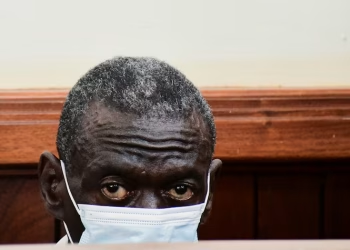Ugandan President Yoweri Kaguta Museveni has stirred regional debate after declaring that landlocked Uganda is entitled to a share of the Indian Ocean, invoking historical and geopolitical arguments to justify his stance. Speaking during a radio talk show at Mbale State Lodge on November 10, 2025, Museveni likened Uganda’s situation to that of tenants sharing a condominium, insisting that proximity to coastal neighbors such as Kenya and Tanzania gives Uganda legitimate rights to the ocean. The remarks have reignited discussions on colonial-era borders, economic dependencies, and the future of East African unity.
Museveni’s “Condominium” Analogy and Ocean Rights Claim
In his bold statement, President Museveni argued that Uganda’s geographic position within East Africa does not eliminate its entitlement to shared regional resources, including the Indian Ocean. Drawing on a “condominium analogy”, he said, “Just because you occupy the inner part of a shared building doesn’t mean you don’t own the balcony.” This metaphor was used to emphasize his view that Uganda’s landlocked status is an artificial consequence of colonial boundaries imposed without consideration for regional economic integration.
Museveni asserted that Uganda’s reliance on the Mombasa port—through which more than 80% of its imports and exports pass—symbolizes structural inequality that continues to hinder the country’s economic growth. He warned that as long as such dependencies persist, regional disputes over trade and access could eventually escalate into conflict. “If we don’t address these injustices, future generations may fight over them,” Museveni cautioned, urging the East African Community (EAC) to treat maritime access as a shared right, not a privilege granted by geography.
Critique of Colonial Borders and Historical Context
Museveni’s comments reflect a long-standing frustration across African nations about colonial borders drawn during the late 19th century. He described the current regional demarcations as “irrational divisions” that disrupted historical trade routes and cultural linkages. Before colonization, trade networks across East and Central Africa allowed interior communities access to coastal ports through reciprocal arrangements and cultural interdependence.
When European colonial powers divided Africa during the Berlin Conference of 1884–85, landlocked states like Uganda were cut off from traditional routes to the sea. Museveni has consistently criticized this legacy, arguing that post-independence African leaders have failed to reform the economic systems inherited from colonial powers. “These borders were designed for exploitation, not for development. Africa’s wealth was meant to flow outward, not inward,” he remarked during the broadcast.
His position aligns with Uganda’s historical push for Pan-Africanism and economic sovereignty—a recurring theme throughout his presidency. Over the years, Museveni has called for the redrawing or rethinking of colonial borders, not through conflict but through greater economic integration, infrastructure development, and collective ownership of strategic assets.
Economic Dependence Through Mombasa Port
Uganda’s reliance on the Port of Mombasa remains a central issue in its trade strategy. As the country handles most of its international trade through the Kenyan gateway, logistical costs and occasional bureaucratic delays have often strained bilateral relations. Uganda imports petroleum, industrial goods, and machinery primarily through Mombasa, while exporting coffee, fish, and minerals along the same route.
Museveni expressed frustration at what he described as “avoidable inefficiencies” that increase the cost of doing business for landlocked nations. Although Uganda has developed alternative routes through Tanzania’s Dar es Salaam Port and South Sudan’s Nimule corridor, Mombasa remains its principal maritime link to global markets.
Recent years have seen Uganda and Kenya sign multiple bilateral agreements aimed at improving cargo handling, reducing customs delays, and expanding joint infrastructure projects. However, Museveni’s latest remarks suggest that he views these arrangements as insufficient in addressing the underlying structural problem—Uganda’s lack of direct access to international waters.
Push for East African Unity and Shared Infrastructure
President Museveni’s remarks are part of his broader vision for a federated East Africa, a goal he has pursued throughout his tenure. He has repeatedly emphasized that deeper regional integration is the only way for African nations to overcome historical injustices and compete on the global stage.
Museveni praised the East African Community (EAC) for expanding membership to include the Democratic Republic of Congo (DRC) and Somalia, but stressed that political unity must be matched with tangible economic cooperation. “We cannot talk about integration when some of us are locked away from key economic gateways,” he said.
He proposed that EAC members adopt a joint maritime framework allowing equal access to regional ports and coastal trade routes. This, he suggested, would prevent future disputes over tariffs, customs, and logistical controls that often create friction among neighboring countries. The president also hinted at the possibility of regional defense cooperation to secure strategic trade corridors and protect shared interests in the Indian Ocean.
Warning of Potential Future Conflicts
While Museveni clarified that Uganda has no intention of pursuing territorial claims through force, he warned that economic inequality and resource exclusion could sow the seeds of future instability. “History teaches us that wars are not always about borders—they are about access and fairness,” he stated. He cited examples of disputes in other regions, such as the Nile Basin and the Great Lakes, where resource competition has occasionally turned violent.
His comments come amid growing regional competition over trade infrastructure, with Kenya, Tanzania, and Ethiopia all investing heavily in new ports, railways, and oil pipelines. Uganda, which is developing its own crude oil resources in the Albertine Graben, has often expressed concern about the cost of exporting petroleum through foreign-controlled routes.
Museveni argued that a unified East African maritime policy could prevent conflicts by ensuring that no country feels economically disadvantaged. “If we act as one, we can avoid the mistakes of history. If we remain divided, others will continue to benefit at our expense,” he said.
Regional and International Reactions
Museveni’s remarks have drawn mixed reactions from analysts and political observers. Supporters view his statement as a visionary call for fairness and unity, while critics interpret it as political rhetoric intended to appeal to nationalist sentiments. Some Kenyan commentators have downplayed the claim, suggesting that Uganda’s dependence on Mombasa is a logistical reality rather than a geopolitical injustice.
Regional policy experts note that Museveni’s comments align with his long-term advocacy for economic self-reliance and continental reform. Over the decades, he has positioned himself as one of Africa’s most vocal proponents of integration, often pushing for stronger cross-border partnerships in trade, energy, and security.
Others, however, warn that his phrasing—particularly the mention of “future wars”—could strain diplomatic relations if misinterpreted. Analysts stress the importance of framing such discussions within constructive regional dialogue rather than nationalist competition.
Historical Parallels and Broader Implications
Museveni’s assertion of Uganda’s “entitlement” to the Indian Ocean echoes earlier movements for economic sovereignty across Africa. Similar debates emerged in the post-independence era, with landlocked nations such as Zambia, Malawi, and Rwanda calling for guaranteed access to seaports through international treaties.
The United Nations Convention on the Law of the Sea (UNCLOS) recognizes the rights of landlocked states to access and transit through coastal territories for trade purposes. Museveni’s remarks appear to build on this principle, urging East African nations to operationalize such legal frameworks within regional agreements.
The statement also reflects growing frustration over Africa’s dependence on colonial infrastructure models that still channel trade routes through former imperial centers. By advocating for shared ownership of the Indian Ocean, Museveni is, in effect, calling for a reorientation of East Africa’s economic map—one that prioritizes collective progress over national boundaries.
Conclusion
President Yoweri Museveni’s assertion that Uganda is entitled to the Indian Ocean has reignited debate about colonial borders, economic justice, and regional cooperation within the East African Community. His remarks combine historical reflection with geopolitical foresight, warning that unresolved structural inequalities could fuel future tensions.
While his “condominium” analogy may appear symbolic, it underscores a larger truth: the prosperity of landlocked African nations remains tied to regional unity and shared access to global trade networks. As East Africa continues to integrate economically, Museveni’s call serves as both a challenge and an opportunity—to redefine sovereignty not through isolation, but through collaboration and collective strength.

